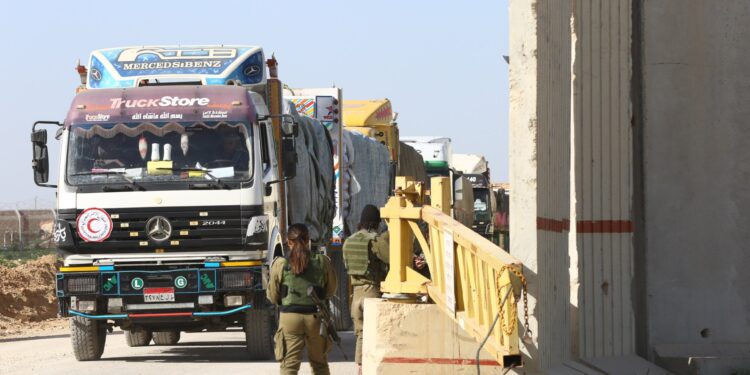The United Nations regretted on Thursday the obstacles placed by the Israeli occupation authorities in the delivery of humanitarian aid to the northern Gaza Strip, noting that every delay costs more lives.
Stephane Dujarric, spokesman for the United Nations Secretary-General, said: “Our humanitarian colleagues told us that between January 1 and 10, only 3 shipments out of 21 shipments of humanitarian aid, including food, medicine, water and other vital goods, could be delivered to the North.” Wadi Gaza.
Dujarric regretted that “the United Nations’ ability to respond to the great needs in the northern part of Gaza is hampered by the repeated refusal to enter aid, and the lack of coordination by the Israeli authorities for safe access.”
He added that these cases of rejection and restrictions on entry (aid) paralyze the ability of humanitarian actors to respond purposefully, consistently and as necessary, noting a “significant deterioration” in the rate of approvals for aid entry requests compared to last December.
Dujarric stressed that “every day that we are unable to provide aid leads to the loss of lives and the suffering of thousands of people still in northern Gaza.”
Medical equipment and water
The shipments include medical equipment, fuel, and water and sanitation facilities, to be delivered to Gaza City and its north, and were rejected by the Israeli authorities, Dujarric confirmed.
Since October 7, Israel has continued to close the crossings between the Gaza Strip and the outside world, while the Rafah crossing has been partially opened for the entry of limited aid and the exit of some sick and injured people and a number of foreign passport holders.
On November 24, Israel allowed small amounts of humanitarian aid to enter the Gaza Strip through the Rafah crossing, in light of a week-long truce between the Palestinian resistance factions in Gaza and Israel that was reached through Qatari-Egyptian-American mediation, which included a prisoner exchange deal.
For 98 days, the Israeli occupation has launched an aggression against Gaza, leaving 23,469 martyrs and 59,604 injured – most of them children and women – massive destruction of infrastructure and an unprecedented humanitarian catastrophe, according to the Gaza Strip authorities and the United Nations.



